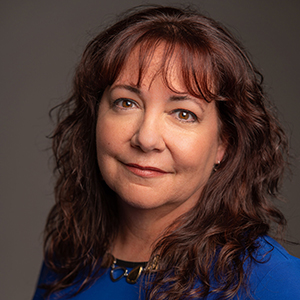
Connect with top-rated doctors specializing in mesothelioma treatment, who will personalize treatment options based on your diagnosis.
Find Your DoctorMesothelioma survivors are living longer than ever before. While typical survival is 12 to 21 months with treatment, some people have lived more than 25 years. Long-term survival is possible with advanced treatments, early detection and comprehensive care from specialized mesothelioma doctors.
A person with mesothelioma is called a survivor from the time they’re diagnosed and for the rest of their life. If you’re living with this cancer, you’re a mesothelioma survivor.
Some people live much longer than expected, even reaching mesothelioma remission. This is often achieved with the help of advanced and sometimes aggressive treatments, a strong care team, and a proactive approach to their health.
Because it’s a rare and aggressive cancer, mesothelioma survivors form a strong community of people who have faced unique challenges. There are many ways survivors, caregivers, and their families help one another. Sharing their insights and firsthand experiences in online communities such as private Facebook support groups and getting involved in awareness and advocacy efforts helps others in a similar situation.
How long you may live with mesothelioma depends on where your tumors first started to develop, how far the cancer has spread, your overall health, and how well your body responds to treatment. Most long-term survivors worked with an experienced mesothelioma doctor.
| Survival Factor | Impact on Survival | Why It Matters |
|---|---|---|
| Early-Stage Diagnosis | Significantly improves survival | Allows for aggressive tumor-removing surgery before cancer spreads |
| Tumor Location | Peritoneal has a better prognosis | Peritoneal mesothelioma responds better to aggressive treatments and spreads less aggressively than pleural mesothelioma |
| Cell Type | Epithelioid responds best | Epithelioid mesothelioma cells tend to respond better to treatment than other cell types |
| Gender | Women have higher survival rates | Some studies show nearly triple the 5-year survival rate for women compared to men |
| Treatment Choice | Critical for extending life | Choosing treatment can slow mesothelioma’s spread, ease symptoms and improve survival |
| Age & Overall Health | Affects treatment tolerance | Overall health, treatment choices and support often matter more than age alone |
Many long-term mesothelioma survivors also pursue a second opinion to ensure they receive the best treatment option. A 2023 clinical trial showed 25% of people with advanced pleural mesothelioma lived more than 3 years when treated with both immunotherapy and chemotherapy. Survival was improved for stage 4 patients as well. A recent case study featured the story of a patient who lived 11 years after diagnosis with chemo and immunotherapy.
New treatments and clinical trials are helping many patients live longer, even those with late-stage mesothelioma. New surgery methods, better drug combinations, and more targeted treatments are helping more people with mesothelioma live longer.

Connect with top-rated doctors specializing in mesothelioma treatment, who will personalize treatment options based on your diagnosis.
Find Your DoctorFinding out that you or a loved one has mesothelioma can feel overwhelming, but you don’t have to go through it alone. There are many resources for mesothelioma caregivers and survivors. Patient Advocates, for example, are a key resource for families living with mesothelioma.
They can connect you with mesothelioma-specific support groups, financial assistance, and mesothelioma specialists with experience successfully treating survivors with similar cases. Our Patient Advocate team can also help with your claims for VA benefits, help you navigate insurance, assist with scheduling your appointments, and offer personalized support throughout your journey. Their assistance is always free.
Mesothelioma Resources and Support
Many resources are also available for families coping with the physical and emotional challenges of helping a loved one cope with mesothelioma. These resources include tips for emergency planning, diet and nutrition, communication strategies for speaking with specialists and avoiding caregiver burnout.
The Patient Advocates at The Mesothelioma Center help match patients with doctors and medical resources. They also offer continued free support, guiding survivors and their loved ones through the health care system. People we’ve helped have shared stories about how we’ve supported them and their families.
Mesothelioma caregiver Lee Bailes tells us, “Patient Advocate Karen Selby has been my angel. I can’t tell you how amazing she has been through every step of the way. Her knowledge has been golden for us. From connecting us with specialists to just bouncing ideas off her, I couldn’t have done this for Michael without her. We’d be lost.”

Get answers about treatment, top doctors, and financial support from the nation’s most trusted mesothelioma resource.
Get Your Free GuideNew treatments, medical advancements, and earlier detection have helped mesothelioma survivors live longer and improve their chances of survival. Their stories show that it’s possible to keep fighting and not give up. These survivor stories offer hope and encouragement to others on the same journey.
Featured Long-Term Survivors
Mesothelioma survivor shares her story.
I had pain in my back, and I couldn’t lay down. The pain was unbearable. We went right to the hospital. The emergency room, they did an x-ray and came back and the doctor told me that I had a large tumor. Then they ended up doing a biopsy. And that’s how they found out that I had mesothelioma. I was scared. I went online, and I found this, you know, organization at Asbestos.com. And, I had talked to Karen, and she was very encouraging, and, she helped me a lot. She sent me information that I mean, I never dreamed there was that much information about it. She was so positive about doing well and getting better. She was awesome. She’s, she’s an awesome lady. I ended up having chemo, and I think it’s called immunotherapy. After my third, therapy, the tumor had shrunk quite a bit. And that was amazing. To me, that was awesome, you know. My husband, Anthony. He ended up doing everything. He did the housework. He cooked. I just didn’t think he would take over the way he did. Just support me as much as he did. He’s an awesome guy. I had so many people just be there to help me and support me through this. Thank you. Thank you for being there for me and doing what you did for me.
Mesothelioma survivor shares her story.
[PIANO MUSIC PLAYING] I’m Tamron Little. I am from Winston-Salem, North Carolina. I am a wife to a veteran of 13 years and counting and a mom of four. I have two boys and two girls. When I was first diagnosed when I was pregnant, I was told I had a fibroid tumor. And even after my pregnancy, I was still told I had a fibroid tumor. And asking women in my family, because fibroid tumors run in my family, they’re like, oh, it’s fine. You’re going to be OK. So I really didn’t think too much of it. But when I was told that I had cancer, it was a shocker. The doctor came in and I remember it like it was yesterday. And he said, you have cancer. Mesothelioma, to be exact. It really didn’t register because I was just like in the Twilight Zone. And everybody was moving around me and all of these emotions were going on. And I was just– felt like I was kind of stuck just– wow. Oh my gosh. And they were coming in and telling me, people don’t survive much with this. And they was just giving me all this. And I’m just like, I haven’t even heard of mesothelioma. First of all, what is mesothelioma? I met Dr. Levine and he is a specialist in mesothelioma. He told me about a surgery and it’s called the HIPEC surgery, which he was very confident in. Since the HIPEC procedure, I have not had any cancer recurrences. So I’m a 13 year and counting survivor. You can survive and have a thriving life after mesothelioma. Asbestos.com is a great resource because I didn’t have hardly anything when I was first diagnosed. I had to go to different places to find out information that just made me even more fearful. But being able to go to one place, Asbestos.com, and get everything that you need in one place is great. I mean, I would recommend it for anybody. [PIANO MUSIC PLAYING]
Mesothelioma survivor shares his story.
My name is Epifanio Figueroa. In my days when I was a young kid, they didn’t tell us that asbestos was bad for you. I I knew it once I was sick. I think that’s one of the things that have caused a lot of damage to people, Not knowing, not having that information because the people that actually manufacture all those things don’t want us to know how dangerous it is. It started with my stomach growing, being getting bigger, and it didn’t stop getting bigger. We went to Brigham Young. There, I got six chemotherapies. The tumors in my body were diminishing to the point that, the last time that I went, the doctor says we can’t see almost anything there. And I feel great. I’m alive because of my wife. She was my mentor, my advisor. I owe her my life. That’s that’s what I can tell you. To all my buddies that have mesothelioma, once you get off the treatment, sweep that under the rug and keep on going forward.
Our Wall of Hope features stories mesothelioma survivors have personally shared with us. Many of these survivors share firsthand insights into their long-term survival and the challenges they overcame. Survivors share details about treatments they chose to have and the ways they’ve improved their personal outlook or prognosis. Their stories showcase their resilience and hope for the future.
We honor the stories of mesothelioma survivors who lived their lives to the fullest before they died. Their stories serve as a reminder of the medical advancements needed to cure this disease.
Yes. Some patients have survived mesothelioma. Patients typically live 12-21 months with treatment. But survivors like Tamron Little and Kim Mardil have lived several years after their diagnoses. These survivors underwent treatment plans that included surgery, chemotherapy and radiation therapy.
Mesothelioma and its treatment may cause long-term nerve pain, edema, weight loss and fatigue. Breathing difficulties and digestive issues may result from pleural or peritoneal mesothelioma, respectively.
The frequency of follow-up appointments depends on the patient and the type of treatment they receive. Your doctor may recommend scans every three or four months, and routine check-ups may occur more frequently.
Yes, unfortunately, mesothelioma commonly recurs after treatment. Depending on the stage of the disease, recurrences may be treated with surgery, immunotherapy, chemotherapy or radiation. Many patients have lived for years with mesothelioma thanks to effective treatment of recurring tumors.
Stay up-to-date on treatment, research, clinical trials, doctors and survivors
The information on this website is proprietary and protected. It is not a substitute for professional medical advice, diagnosis or treatment. Any unauthorized or illegal use, copying or dissemination will be prosecuted. Please read our privacy policy and terms of service for more information about our website.
This website and its content may be deemed attorney advertising. Prior results do not predict a similar outcome.
The Mesothelioma Center’s claim as the most trusted resource is based on our more than 150 5-star Google and BBB reviews. Our organization also helps more than half of all mesothelioma patients annually diagnosed.
Your web browser is no longer supported by Microsoft. Update your browser for more security, speed and compatibility.
If you are looking for mesothelioma support, please contact our Patient Advocates at (855) 404-4592
The Mesothelioma Center at Asbestos.com has provided patients and their loved ones the most updated and reliable information on mesothelioma and asbestos exposure since 2006.
Our team of Patient Advocates includes a medical doctor, a registered nurse, health services administrators, veterans, VA-accredited Claims Agents, an oncology patient navigator and hospice care expert. Their combined expertise means we help any mesothelioma patient or loved one through every step of their cancer journey.
More than 30 contributors, including mesothelioma doctors, survivors, health care professionals and other experts, have peer-reviewed our website and written unique research-driven articles to ensure you get the highest-quality medical and health information.
My family has only the highest compliment for the assistance and support that we received from The Mesothelioma Center. This is a staff of compassionate and knowledgeable individuals who respect what your family is experiencing and who go the extra mile to make an unfortunate diagnosis less stressful. Information and assistance were provided by The Mesothelioma Center at no cost to our family.LashawnMesothelioma patient’s daughter


Whitmer, M. (2026, February 13). Mesothelioma Survivors. Asbestos.com. Retrieved February 19, 2026, from https://www.asbestos.com/mesothelioma/survivors/
Whitmer, Michelle. "Mesothelioma Survivors." Asbestos.com, 13 Feb 2026, https://www.asbestos.com/mesothelioma/survivors/.
Whitmer, Michelle. "Mesothelioma Survivors." Asbestos.com. Last modified February 13, 2026. https://www.asbestos.com/mesothelioma/survivors/.

Dana Nolan, MS, LMHC, is a licensed mental health counselor who leads The Mesothelioma Center’s monthly support group. She specializes in working with people affected by cancer. Dana has experience with inpatient and outpatient counseling, and clinical research in the U.S. and Australia. Dana practices in Altamonte Springs, Fla.
Our fact-checking process begins with a thorough review of all sources to ensure they are high quality. Then we cross-check the facts with original medical or scientific reports published by those sources, or we validate the facts with reputable news organizations, medical and scientific experts and other health experts. Each page includes all sources for full transparency.
Please read our editorial guidelines to learn more about our content creation and review process.
